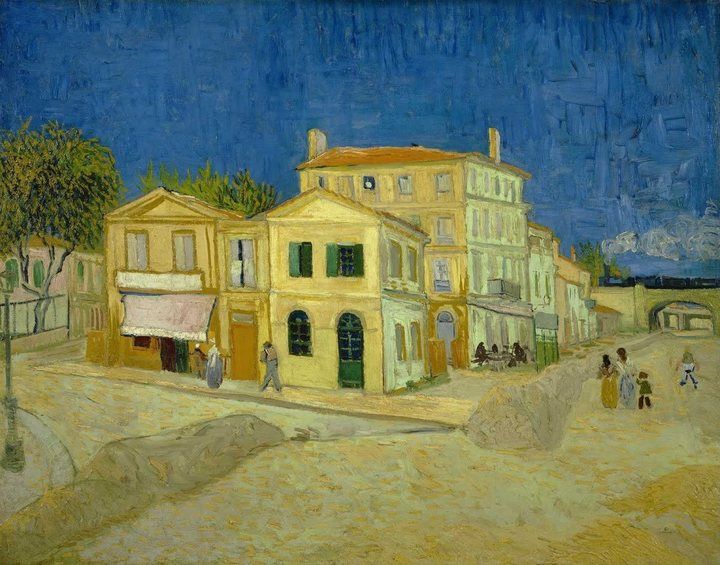Gauguin et Van Gogh : living together
These two famous painters, who lived at the end of the 19th century, were such good friends that they decided to create a community of avant-garde artists together. In October 1888, Gauguin joined Van Gogh in Arles in the "Yellow House" he rented, where he stayed for just over two months.
The two friends lived together: they shared expenses, drank a lot of absinthe and both painted the same subjects. Van Gogh in particular was very prolific. Unfortunately, their relationship eventually deteriorated and the cohabitation no longer went so well: the relationship was unbalanced - Van Gogh had a tendency to take advantage of Gauguin, dipping into his money, not taking part in the household chores...
But it was above all over a quarrel of an artistic nature that things went sour, on 23 December 1888, after a violent discussion on painting during which Gauguin argued that he should work from imagination, and Van Gogh from nature...

The ear episode
Things then escalated. According to Gauguin's testimony, Van Gogh threatened him with a knife. Van Gogh threatened him with a knife; Gauguin, frightened, immediately left the scene. Van Gogh, finding himself alone and in a fit of madness, cut off a piece of his left ear with a razor, wrapped it in newspaper and took it to a prostitute he saw regularly, a woman called Rachel. He then simply went to bed. The police didn't find him until the next day, his head bloodied and his mind muddled. Gauguin then explained the facts to them before leaving Arles for good - which would have been the last time they saw each other.

However, two German academics, Hans Kaufmann and Rita Wildegans, support another theory. During the fight, it was not Van Gogh who cut off his ear, but Gauguin (who was a master of arms) who unwittingly sliced it off with his sabre. This was an unfortunate gesture on Van Gogh's part, as he was just trying to frighten him... Gauguin then fled and threw the weapon into the Rhône (the blade was never again in his possession). There are few documents to support either theory, so the mystery remains complete!
In Tahiti in 1901, Gauguin nevertheless painted sunflowers as a last tribute, perhaps a remorse, to his friend who was obsessed with these flowers and their colour...

Going further... emblematic artists
Born in 1848, Paul Gauguin is one of the fathers of modern art. His use of colour, in particular, revolutionised painting and had a huge influence on artists such as Matisse and Picasso. A man of character, he had an eventful and exciting life, successively as a banker, a worker during the construction of the Panama Canal, a painter in Brittany and then in Tahiti...
The Dutch painter Vincent Van Gogh (1853 - 1890) is another major figure in the history of painting. This man who lived in poverty and madness nevertheless had many friends, including his brother Theo, the painter Émile Bernard and, above all, Paul Gauguin... His destiny came to an end in 1890 when he chose to shoot himself in the chest, thus putting an end to his increasingly frequent psychotic attacks.
They both explored the possibilities of colour, long before the avant-garde experiments of the early 20th century.
